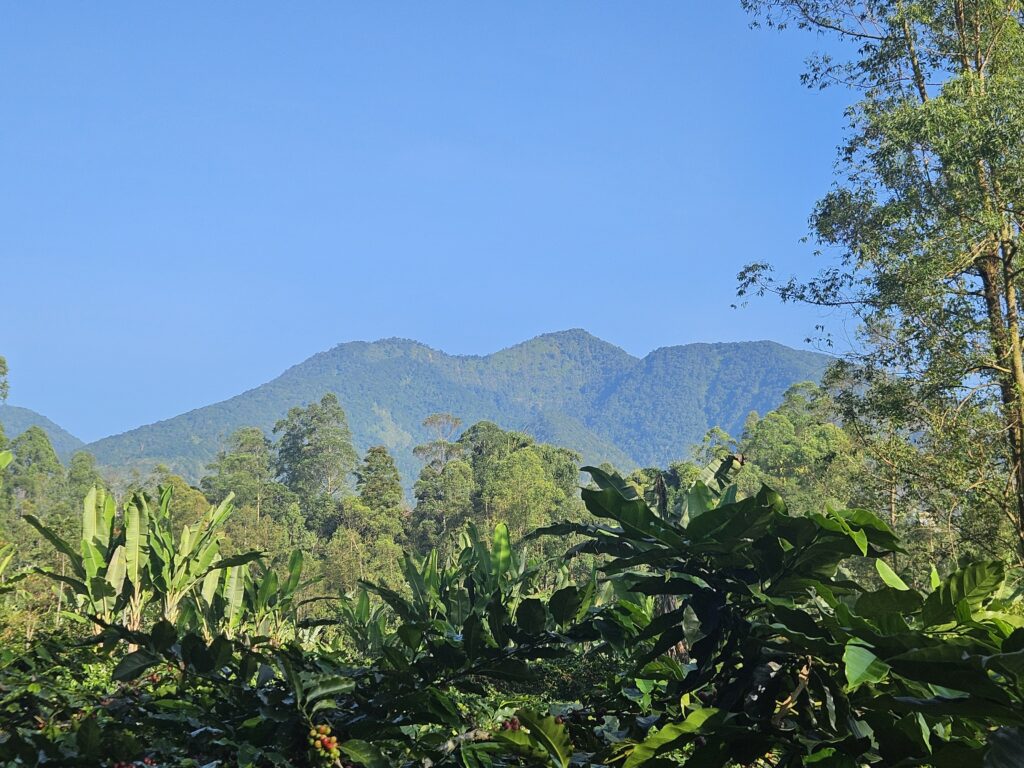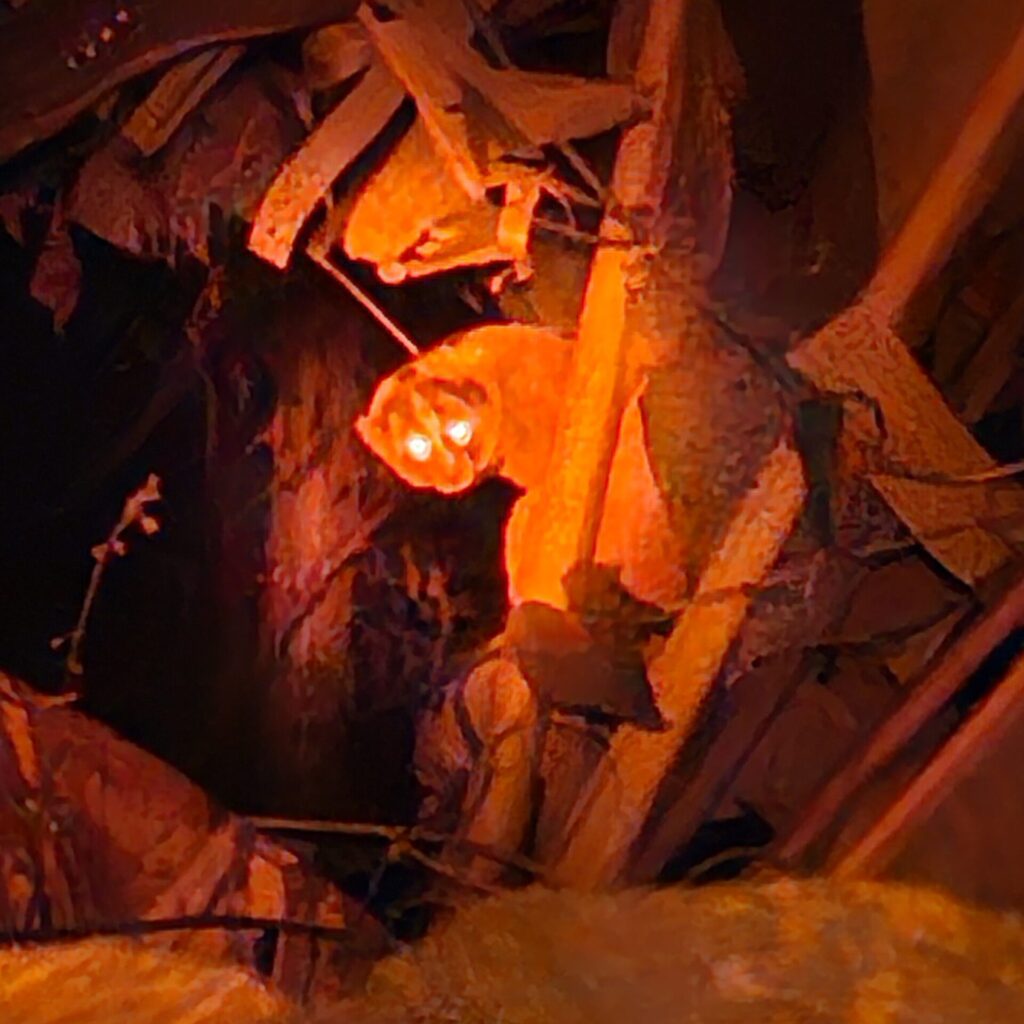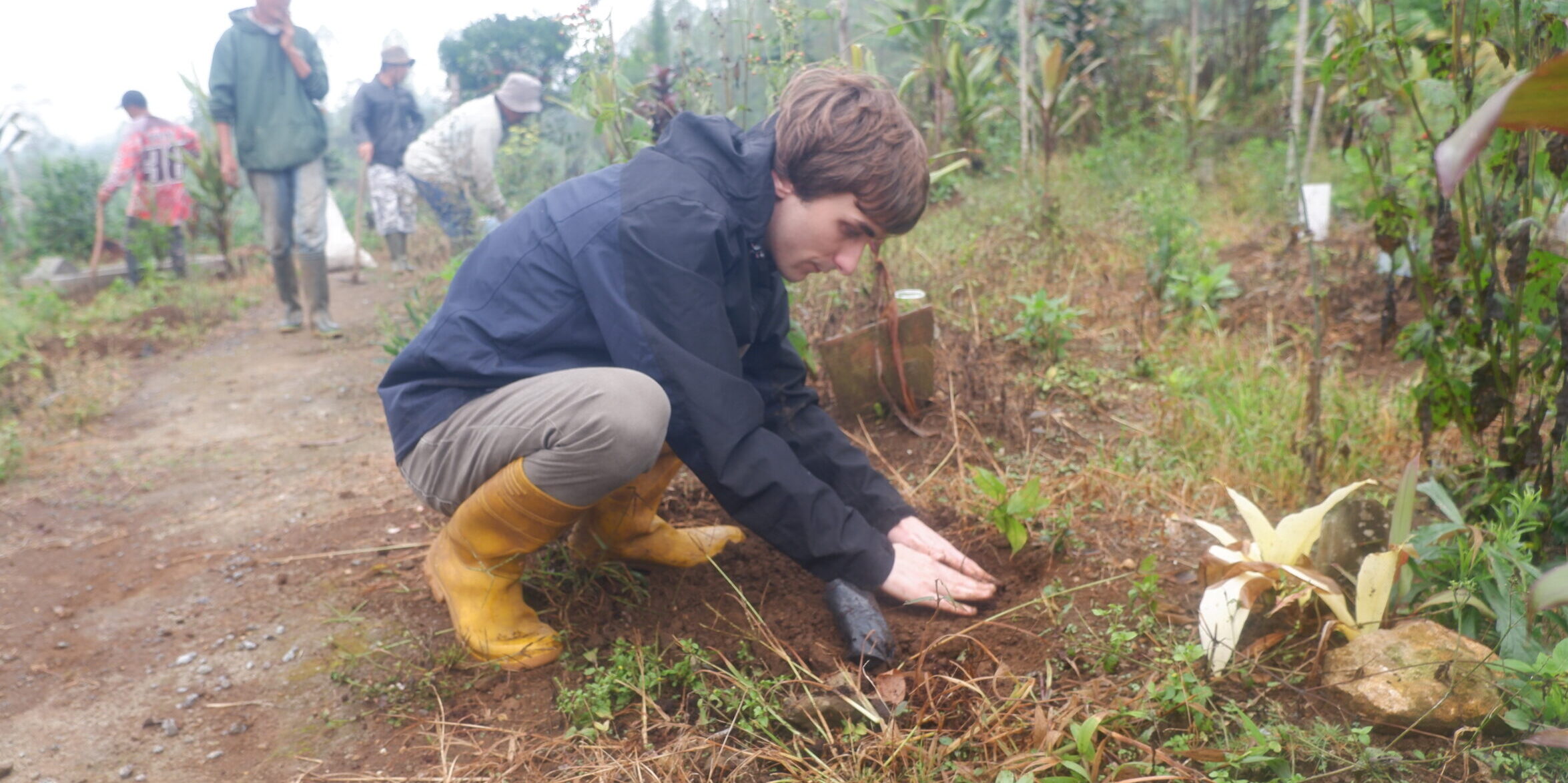I am Alex Duggan, a student of Anna Nekaris and Oxford Brookes alumnus who volunteered at LFP. I assisted at LFP by participating in focal sampling of the collared Slow Lorises in the farmlands of Cipaganti. Cipaganti had beautiful surroundings with green landscapes and was surrounded by volcanoes and mountain peaks covered with trees.

Cipaganti was the village of cats. They were everywhere with villagers loving them. LFP had its own cats, Miskin, who I quickly bonded with and who spent a lot of time sitting on my lap when I was on my laptop. There was also a black and grey cat which was often trying to enter the field station, so we would have to pick her up and carry her outside.
The villagers of Cipaganti were friendly and took an interest in me because I wasn’t from Indonesia. They often greeted me when I walked around the village on my own and were intrigued by the European among them. LFP had a good relationship with the locals, and we were invited to village events, such as the schools graduation ceremony and were invited to actively take part in activities and have photographs taken with locals. We also worked with villagers for forestry programmes, such as on the 28th of June, when we woke up super early to work with our tracker Pak Juhanna and other villagers to plant tree saplings in the cemetery. LFP also had a great relationship with the local trackers and we were invited to their houses for dinner. Cipaganti was a small village but managed to fit a lot into a small area. There were 16 mosques, a school, a government building and several houses and markets.
Observations of the lorises focused on their behaviour and actions. I observed loris actions for 5 hours a night and recorded their behaviour every 5 minutes. Observations often showed lorises were solitary animals, though there were sometimes when they spent time with others. I hope this research contribute to understanding loris behaviour, diet and strategies for conserving them.


